A turning point, or not? Key takeaways from Worcester city election
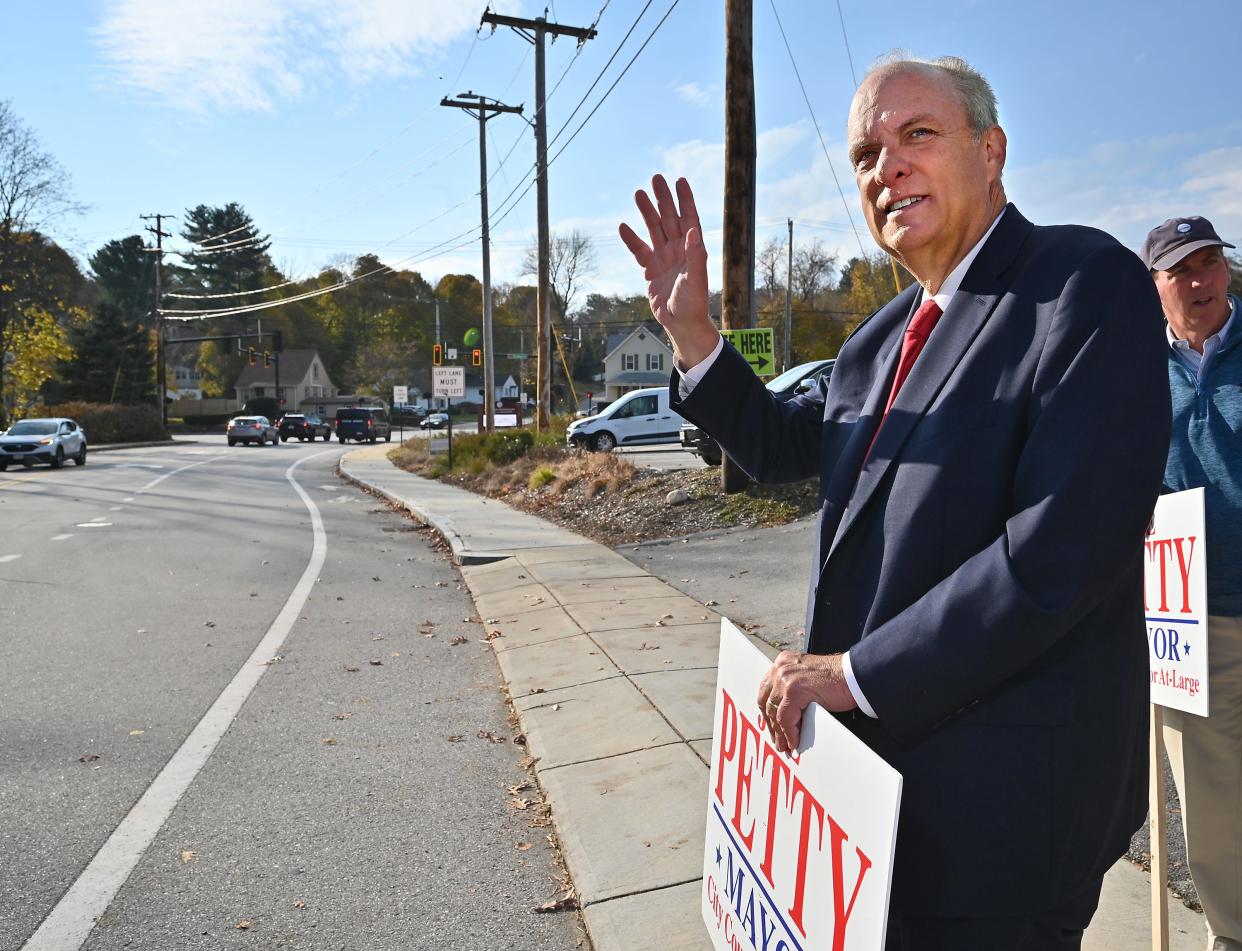
WORCESTER — Several candidates for public office in Worcester talked about the city being at a turning point and said the 2023 municipal election would have serious implications for the trajectory of the city.
In the end, the political dynamics of one elected body in the City of Worcester may not change very much, while another could take a more moderate or conservative turn.
Here are five key takeaways from Worcester's municipal election:
Turnout increased with more mail-in votes
According to unofficial results, 24,585 ballots were cast in a city with 112,326 eligible voters.
Turnout came out to about 21.9%. While it may have been a lower turnout than advocates for local elections would have wanted to see, it was higher than turnout in the past three elections and slightly edged out turnout in 2015.
Turnout in prior elections was as follows: 16.6% in 2021, 17.3% in 2019, 15.3% in 2017 and 21.4% in 2015.
A high number of votes also came in before Election Day: More than 5,000 ballots were received before Tuesday.
Mayor, City Council consistent with 2021
On the City Council side, Election Day proved the power of incumbency.
At the top of the ballot, Mayor Joseph M. Petty comfortably won reelection to an unprecedented seventh term. He bested his nearest competition, Councilor-at-Large Khrystian E. King, 49.9% to 27.4%.
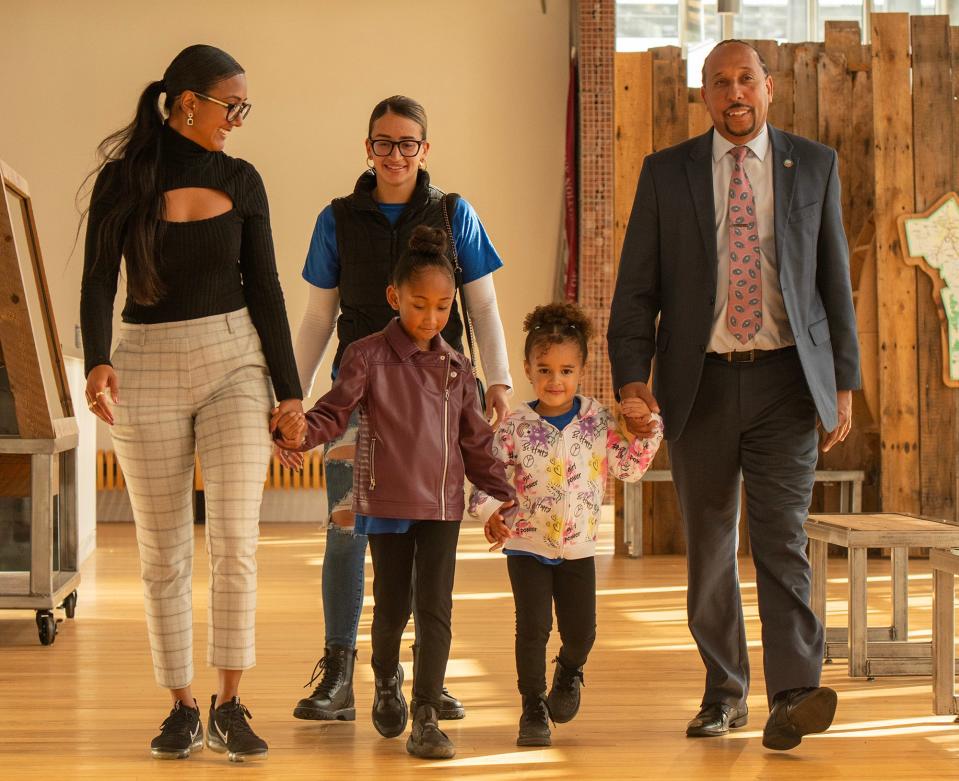
Petty did earn a lower vote share than in the past two municipal elections. Councilor-at-Large Donna Colorio, William Coleman and Guillermo Creamer Jr. rounded out the five-person field. Petty received over 60% of the vote in 2021 and 2019.
King earned a higher vote share than Colorio's second-place finishes in 2021 and 2019, and said he received the highest number of votes he ever got. Colorio received 10.8% of the mayoral vote this year.
In an 11-person at-large City Council field, all six incumbents won back their seats. Furthermore, the rise in voter turnout translated to all incumbents increasing their raw votes from 2021.
Along with Petty, King and Colorio, Kathleen Toomey, Morris Bergman and Thu Nguyen kept their seats.
In the district races, incumbents Candy Mero-Carlson, George Russell and Etel Haxhiaj were reelected in Districts 2, 3 and 5 respectively.
Newcomers Jennifer Pacillo in District 1 and Luis Albizu Ojeda in District 4 received the backing of outgoing incumbents Sean Rose and Sarai Rivera, respectively.
City Council retains status quo
When 27 candidates returned signatures to run for City Council, it seemed possible that the dynamics of City Council could change in several ways. Furthermore, it seemed like the municipal election was inspiring more voters to turn out this year.
Some candidates said city politics became increasingly toxic and two councilors reported vandalism of their personal property.
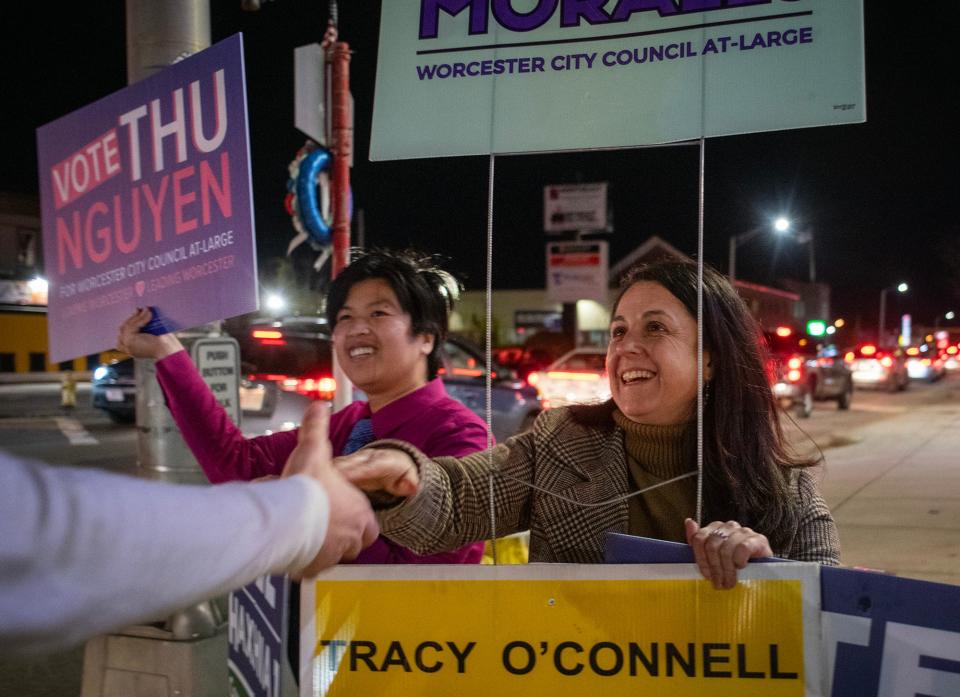
However, the new City Council largely replicated the balance set in 2021, with efforts from both sides of the aisle to move the needle coming up short.
City progressives hoped King and Nguyen could be joined by at least one or two likeminded challengers in the at-large race: Maydeé Morales, Domenica Perrone, Creamer or Johanna Hampton-Dance. They also supported Robert Bilotta against Mero-Carlson in District 2.
Advertisements from the progressive Worcester Working Families Independent Expenditure Political Action Committee attacked Colorio, Toomey, Bergman, Mero-Carlson and Petty as members of a status quo that had not done enough to address issues such as police accountability and affordable housing.
All of the at-large challengers lost. Pacillo won with support from both progressives and Rose, who stands in the rough political center of City Council.
Colorio, Toomey, Bergman and Mero-Carlson tended to refer to themselves as "common sense" candidates, while Petty stressed his ability to reach compromises. They warned that the city could see its economic progress reversed if more activism-oriented candidates won.
One mailer from Mero-Carlson featured a photo of Bilotta with King, Nguyen, Morales and Haxhiaj warning that if elected, Bilotta would join the "ultra liberal faction" of City Council.
However, two district council candidates receiving support from the more conservative and centrist side of city politics, José Rivera in District 5 and David Peterson in District 1, lost their races.
Former superintendent among winners in a changed School Committee
On the other hand, the School Committee will see a significant change, with five new members and a likely shift in a more moderate to conservative direction.
A reassessment of police in schools, the implementation of the current sex education curriculum and the role of parents in overseeing curriculum could be topics of discussion for the School Committee when the new members take their seats in January.
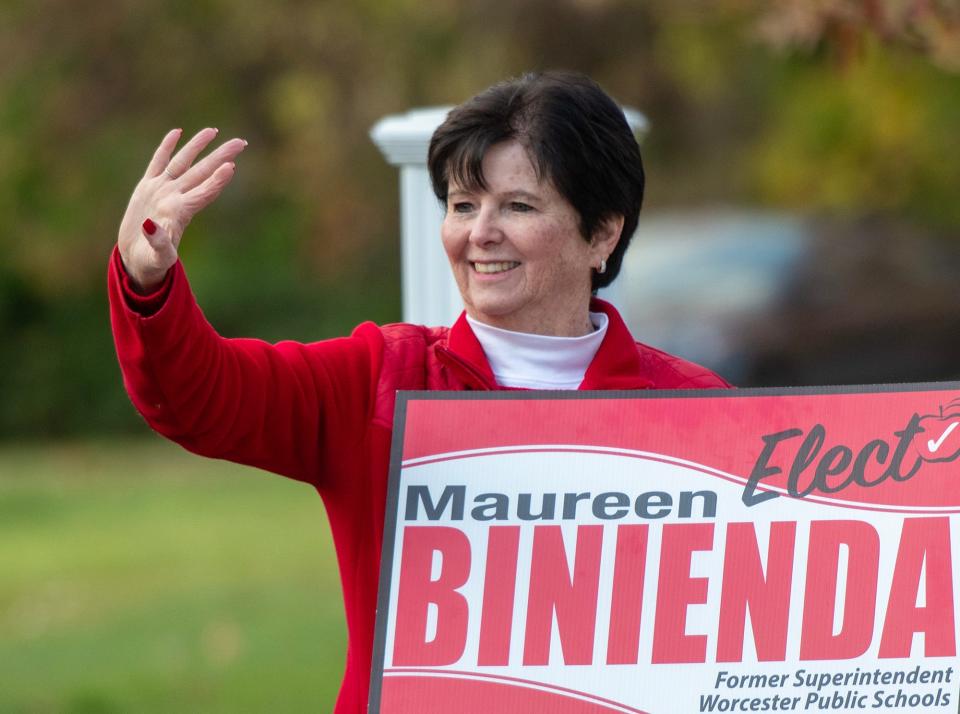
It was the first School Committee election held under a system in which only two members will serve at-large, while six will represent newly created districts. Petty, as mayor, will again serve as the chair of the committee.
In the first year under the system, four of the new districts only had one candidate and three incumbents faced off with former Superintendent Maureen Binienda for the two at-large seats.
Binienda will be among the new committee members, along with former School Committee member Dianna Biancheria in District C, Vanessa Alvarez in District B, Alex Guardiola in District D and Kathleen Roy in District E.
Incumbents Tracy O'Connell Novick and Laura Clancey fell short in their bids for at-large seats while incumbent Jermoh Kamara, who ran in District C, lost to Biancheria.
Binienda was the top vote-getter for the at-large race, beating two incumbents who voted in 2021 not to renew her contract. Incumbent Sue Mailman also received an at-large seat.
The decision not to renew Binienda's contract was controversial. She has deep ties in Worcester and worked in Worcester Public Schools for decades including as principal of South High Community School.
However, Binienda also received criticism for the district's handling of student discipline, sex education and systemic racism.
In the lead up to the election, incumbents said the current School Committee had succeeded at being collaborative and touted its work selecting and supporting new Superintendent Rachel H. Monárrez.
O'Connell Novick, Mailman, Kamara and newcomer Nelly Medina in District E received support from progressives and Worcester Working Families. The PAC criticized Binienda, Roy and Biancheria.
O'Connell Novick is a particular favorite of city progressives and target of ire from conservatives.
Incumbents Molly McCullough and Jermaine Johnson won uncontested races for District A and F.
Two close council races
While Haxhiaj and Mero-Carlson won re-election, both were ahead of their opponents by less than 200 votes in districts that cover opposite sides of the city.
Haxhiaj's race against José Rivera was the most discussed district race of the year. Rivera had name recognition from his career as a professional boxer and work with youths in the city while Haxhiaj is a longtime community activist and one of the most progressive city councilors.
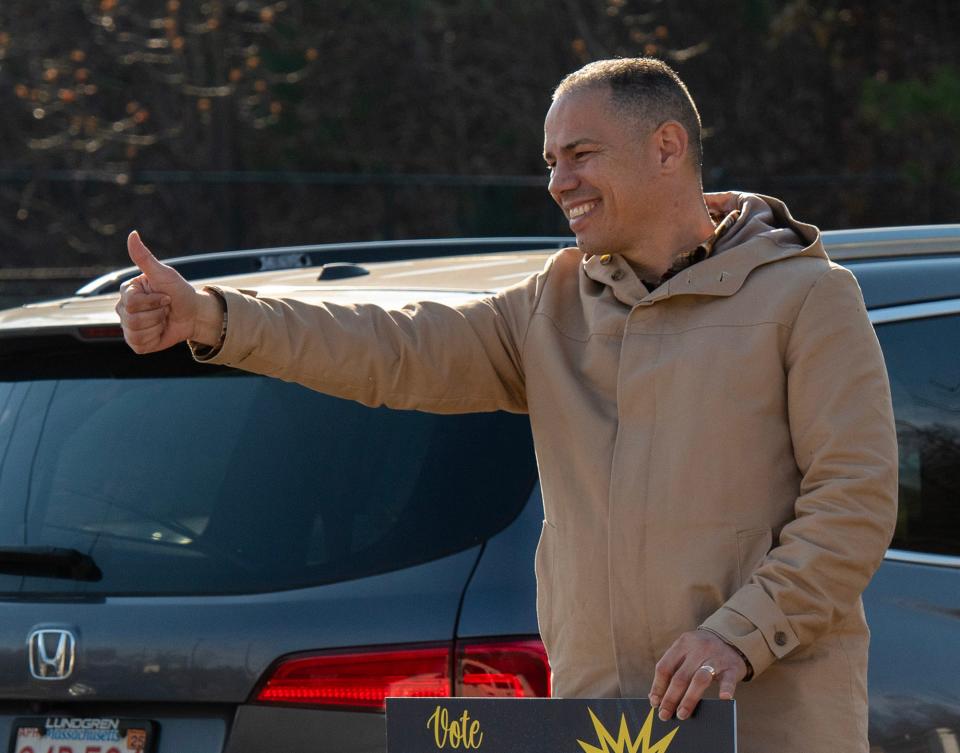
Rivera challenged Haxhiaj on issues such as homelessness, zoning regulations and her approach on district issues. Both candidates attacked each other on social media and in candidate forums.
Rivera was also not far behind Haxhiaj in fundraising and spent more prolifically. He received additional support from the business-backed Progress Worcester IEPAC while Haxhiaj was backed by Worcester Working Families.
In the high-turnout district, Haxhiaj came out ahead with 3,225 votes (51.3%) to Rivera's 3,057 (48.7%).
Tuesday night, Rivera left the door open to running again.
Mero-Carlson's East Side district includes centers of commercial development like downtown and the Canal District and several upcoming apartment projects. The district also tends to have lower turnout than District 5.
Bilotta, a program coordinator at Easter Seals Massachusetts and disability advocate, said Mero-Carlson belonged to an "old-guard" in Worcester politics; he ran on a message of making sure district residents were not overlooked as economic development continues.
Mero-Carlson also spent heavily in the race.
She won with 1,553 votes (52.8%) to Bilotta's 1,389 (47.2%).
Bilotta said Tuesday he was encouraged by the close result to run again.
This article originally appeared on Telegram & Gazette: Worcester city election: 5 key takeaways

